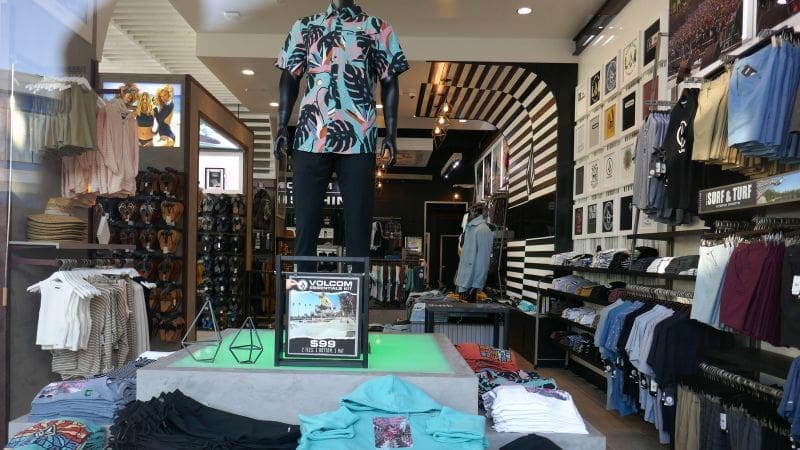The retail landscape is witnessing significant shifts as iconic brands Quiksilver, Billabong, and Volcom announce the closure of all their US stores. These closures mark the end of an era for brands synonymous with surfer and skateboard-inspired fashion. The move affects over a hundred stores nationwide, representing a substantial change in the retail sector.
This development comes after the operator of these brands, Liberated Brands, filed for bankruptcy. They have attributed their financial difficulties to fierce competition from fast-fashion brands and the prevailing economic challenges. In this context, understanding the underlying reasons for these closures could provide insights into the broader trends affecting traditional brick-and-mortar stores.
Economic Struggles and Bankruptcy
Liberated Brands, the operator managing Quiksilver, Billabong, and Volcom, has faced mounting financial challenges, culminating in a bankruptcy filing. A volatile global economy and shifts in consumer spending are cited as major contributors to the financial downturn. Rising living costs and inflationary pressures have compounded these issues, impacting consumer purchasing power and, consequently, sales figures.
According to CEO Todd Hymel, the past year has been particularly difficult due to ‘dramatic rise in interest rates and persistent inflation.’ Supply chain delays have further pressured costs, making it increasingly difficult for the company to sustain operations. These factors collectively contributed to the decision to shutter store operations.
Impact of Fast Fashion
A significant factor in the decline of these iconic brands is the rise of fast fashion, which has rapidly transformed the apparel market. Fast fashion brands have gained an edge by offering affordable, trendy clothing that appeals to fashion-conscious consumers.
These rivals have the ability to quickly evolve with changing fashion trends, unlike brick-and-mortar stores that may fall behind. This agility in the market allows fast fashion brands to capture a demographic that once gravitated towards Quiksilver, Billabong, and Volcom.
The Future of the Brands
Despite the closure of physical stores, Quiksilver, Billabong, and Volcom will not vanish entirely. Their parent company, Authentic Brands Group (ABG), is transitioning the licenses to another operator to ensure continued production and distribution of these lines.
Authentic Brands Group emphasizes that stores were ‘overinflated and burdened with outdated and underperforming locations.’ Moving forward, these brands will be available at specialty retailers, department stores, and online platforms. This shift aims to enhance operational efficiency and broaden market reach.
Retail Industry Trends
The closure of these stores is part of a larger trend occurring within the retail industry. In 2025, more than 15,000 retail stores are expected to close, which is more than double the closures from the previous year.
These closures reflect a shift toward e-commerce and a transformation in consumer shopping habits. As people increasingly favor online shopping for its convenience and variety, traditional stores are facing unprecedented challenges in maintaining foot traffic.
Consumer Habits and Economy
Changing consumer habits are contributing to the shifting retail landscape. Increasingly, shoppers are drawn to brands offering competitive prices and the latest trends, a preference that benefits fast fashion retailers.
Economic factors such as inflation and increased cost of living have also changed how consumers allocate their spending, with many opting for more budget-friendly options. This change in spending habits is significant as it dictates the market dynamics.
The Role of Inflation
Inflation has played a critical role in reshaping consumer habits and the broader retail sphere. As prices rise, consumers’ purchasing power diminishes, affecting their ability to indulge in non-essential purchases, such as the apparel offered by Quiksilver, Billabong, and Volcom.
The economic strain of increasing inflation rates, coupled with static wage growth, has caused a shift in consumer priorities and spending behaviors. This shift impacts retailers’ strategies severely.
Impact on Employees
The closure of over 100 stores will undoubtedly impact the employees who have been part of these brands. Job loss is imminent for many due to these shutdowns, which highlights the human aspect of this corporate decision.
Transition support and potential employment opportunities within other branches of ABG or outside the company may mitigate some negative effects, although the personal toll remains substantial.
Transition to Online and Specialty Retailers
The move to focus on online sales and specialty retailers is seen as a strategic pivot to adapt to market changes. This transition aligns with the broader industry trend of embracing digital channels to reach consumers effectively and efficiently.
This strategy not only targets younger, tech-savvy customers but also aims to streamline operations, cut costs, and enhance brand resilience by avoiding the pitfalls of maintaining physical storefronts.
Economic Future and Retail Outlook
The current changes signal a shift in how brands operate within the retail space. Brands are increasingly prioritizing digital presence and strategic partnerships as they strive to remain competitive in a challenging market.
As economic conditions evolve, companies must remain adaptable and innovative to sustain operations and engage consumers in meaningful ways. The retail landscape is undoubtedly changing, and responsiveness to these changes will be crucial for success.
The closure of Quiksilver, Billabong, and Volcom stores in the US encapsulates the shifts in the retail industry. While these physical locations cease operations, the brands’ future lies in adapting to changing consumer habits and market dynamics. The retail sector’s transformation remains a testament to evolving economic and consumer landscapes.








